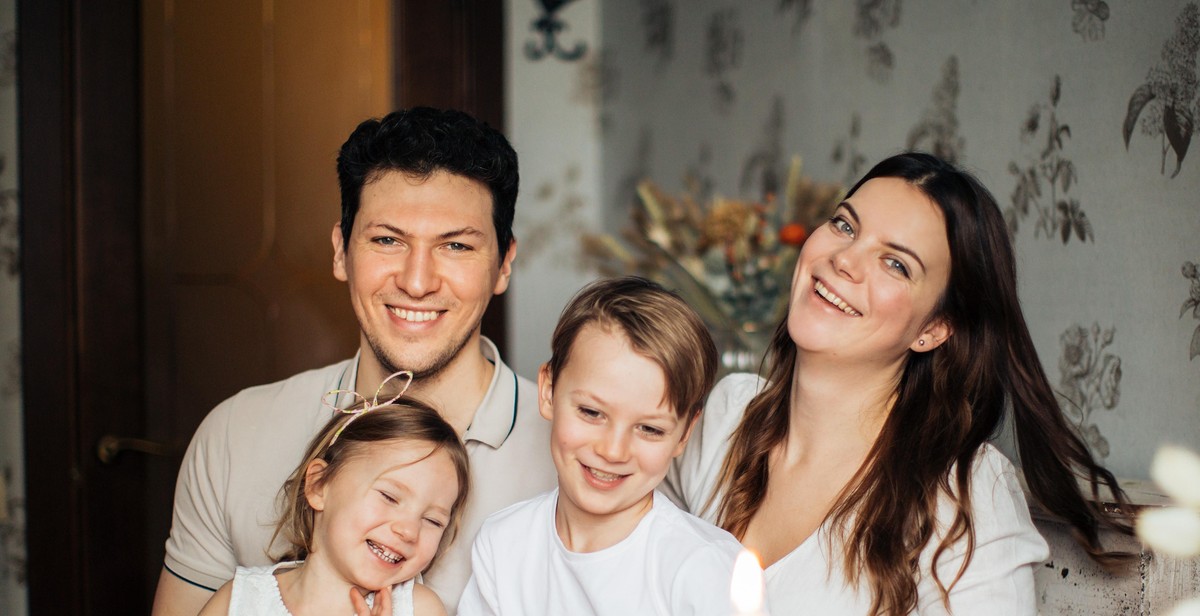Understanding the Link Between Love and Happiness
Love and happiness are two of the most desired things in life. People have been searching for love since the beginning of time, and happiness is something that we all strive for. But have you ever stopped to think about the link between love and happiness?
Studies have shown that there is a strong connection between love and happiness. When we are in love, our brains release a chemical called dopamine, which is associated with pleasure and reward. This chemical makes us feel happy and elated, which is why being in love can be such a wonderful experience.
But the connection between love and happiness goes beyond just the release of dopamine. When we are in a loving relationship, we feel supported and cared for. We have someone to share our joys and sorrows with, and this can have a significant impact on our overall happiness.
On the other hand, lack of love or failed relationships can lead to feelings of sadness, loneliness, and even depression. This is why it is so important to understand the link between love and happiness and to make sure that we are nurturing our relationships and cultivating love in our lives.
The Importance of Understanding the Link Between Love and Happiness
Understanding the link between love and happiness can help us to prioritize our relationships and make sure that we are investing our time and energy in the right places. It can also help us to recognize when we are in unhealthy relationships that are not contributing to our overall happiness.
In this article, we will explore the link between love and happiness in more detail, looking at the science behind it and the practical steps that we can take to cultivate love and happiness in our lives.

What is Love?
Love is a complex emotion that is difficult to define because it means different things to different people. However, at its core, love is the intense feeling of affection and connection that you have for someone else. It can be romantic, platonic, or familial, and it is often characterized by feelings of warmth, tenderness, and vulnerability.
Types of Love
Love can take many different forms, and psychologists have identified several different types of love that people experience in their lives:
- Romantic Love: This is the type of love that is often portrayed in movies and novels. It is characterized by intense feelings of passion, desire, and longing for someone else. Romantic love is often accompanied by physical attraction and a desire for intimacy.
- Platonic Love: This is a non-romantic type of love that is often shared between friends or family members. It is characterized by feelings of affection, loyalty, and deep friendship.
- Familial Love: This is the love that exists between family members. It is characterized by feelings of loyalty, protection, and unconditional love.
- Self-Love: This is the type of love that you have for yourself. It is characterized by feelings of self-acceptance, self-esteem, and self-respect. Self-love is important for overall well-being and happiness.
Understanding the different types of love can help you to better understand your own feelings and relationships with others. Love is a powerful emotion that can bring happiness, joy, and fulfillment to your life.

The Science Behind Love and Happiness
Love and happiness are two of the most sought-after states of being, and for good reason. Countless studies have shown that a happy and fulfilling romantic relationship can have a positive impact on overall well-being, while loneliness and heartbreak can have the opposite effect. But what is it about love that makes us feel so happy and content?
The Brain in Love
When we fall in love, our brains undergo a series of chemical changes that can be likened to being on drugs. The brain releases a surge of dopamine, oxytocin, and serotonin, which are all neurotransmitters associated with pleasure and reward. Dopamine, in particular, is responsible for the feelings of euphoria and excitement that come with falling in love.
But it’s not just about the pleasure centers of the brain. Falling in love also activates the brain’s attachment and bonding systems, which are associated with the release of oxytocin. Oxytocin is often referred to as the “love hormone” because it plays a crucial role in social bonding and attachment.
As a result, being in a loving relationship can lead to increased feelings of happiness, contentment, and overall well-being. The brain’s reward system is constantly being activated, and the release of oxytocin helps to strengthen the bond between partners.
The Brain in Happiness
While love can certainly contribute to feelings of happiness, it’s not the only factor. The brain’s reward system is also activated by other pleasurable experiences, such as eating good food or engaging in enjoyable activities. When we experience something pleasurable, the brain releases dopamine, which reinforces the behavior and encourages us to seek out similar experiences in the future.
However, happiness is not just about pleasure and reward. It also involves a sense of purpose and meaning in life. Studies have shown that people who have a sense of purpose and meaning are more likely to report higher levels of happiness and life satisfaction.
Overall, the link between love and happiness is complex and multifaceted. While being in a loving relationship can certainly contribute to feelings of happiness, it’s not the only factor. The brain’s reward system is constantly being activated by a variety of pleasurable experiences, and a sense of purpose and meaning in life is also crucial for overall well-being.

The Link between Love and Happiness
Love and happiness are two concepts that are often intertwined. People often say that love brings happiness, but how exactly does love affect happiness? In this section, we will explore the link between love and happiness and the role that happiness plays in a successful relationship.
How Love Affects Happiness
Love can have a profound impact on our happiness levels. When we are in love, our brains release chemicals such as dopamine, oxytocin, and serotonin, which are associated with pleasure, bonding, and well-being. These chemicals can make us feel happy, content, and fulfilled.
Love can also provide a sense of security and support, which can contribute to our overall happiness. Knowing that we have someone who loves us unconditionally and is there for us through thick and thin can give us a sense of comfort and peace of mind.
The Role of Happiness in a Successful Relationship
Happiness is an essential ingredient in a successful relationship. When both partners are happy, they are more likely to feel satisfied with the relationship and less likely to experience conflicts or negative emotions.
Moreover, happy couples tend to communicate better, show more affection, and have a stronger emotional connection. They are also more likely to engage in positive behaviors such as gratitude, forgiveness, and generosity, which can further strengthen the relationship.
On the other hand, when one or both partners are unhappy, it can lead to dissatisfaction, resentment, and conflicts. Unhappiness can also lead to negative behaviors such as criticism, defensiveness, and withdrawal, which can further damage the relationship.
Conclusion
In conclusion, love and happiness are closely linked, and both are essential for a successful and fulfilling relationship. When we experience love, our brains release chemicals that can make us feel happy and satisfied. Furthermore, happiness plays a crucial role in maintaining a healthy and strong relationship. Therefore, it is vital to prioritize happiness and strive to create a positive and supportive environment for ourselves and our partners.

Ways to Cultivate Love and Happiness
Love and happiness are two sides of the same coin. When you are happy, you radiate positive energy that attracts love, and when you feel loved, you are more likely to experience happiness. Here are some ways to cultivate love and happiness in your life:
Practice Gratitude
Gratitude is a powerful emotion that can transform your life. When you focus on the good things in your life, you will feel more positive and optimistic. Take a few minutes every day to reflect on the things you are grateful for. Write them down in a journal or share them with your partner. Expressing gratitude can deepen your connection and strengthen your relationship.
Communicate Effectively
Effective communication is the foundation of a healthy relationship. When you communicate effectively, you can express your needs, feelings, and concerns in a way that is respectful and clear. This can help you avoid misunderstandings and conflicts. Make sure to listen actively to your partner and validate their feelings. Practice empathy and try to see things from their perspective.
Here are some tips for effective communication:
- Use “I” statements instead of “you” statements
- Avoid blaming or criticizing your partner
- Be specific and clear about your needs and expectations
- Ask open-ended questions to encourage dialogue
- Practice active listening by reflecting back what your partner said
By practicing gratitude and communicating effectively, you can cultivate love and happiness in your relationship. These habits can also help you build resilience and cope with challenges. Remember that love and happiness require effort and commitment, but the rewards are priceless.

Conclusion
Love and happiness are intricately linked, and understanding this connection can help us build stronger, more fulfilling relationships. Research has shown that happy couples tend to have better health, longer lives, and more satisfying sex lives. They also tend to be more supportive of each other, communicate better, and have more positive interactions.
However, it’s important to note that love and happiness aren’t always easy to achieve. Relationships take work, and there will be challenges along the way. It’s important to be willing to put in the effort and to communicate openly and honestly with your partner.
Remember, too, that happiness doesn’t necessarily mean constant bliss. It’s normal to experience ups and downs in any relationship, but the key is to work through those challenges together and to maintain a strong foundation of love and support.
Ultimately, love and happiness are both essential components of a fulfilling life. By understanding the link between the two and working to cultivate both in our relationships, we can create a life that is full of joy, meaning, and connection.
References:
- Diener, E., & Seligman, M. E. (2002). Very happy people. Psychological science, 13(1), 81-84.
- Fowler, J. H., & Christakis, N. A. (2008). Dynamic spread of happiness in a large social network: longitudinal analysis over 20 years in the Framingham Heart Study. Bmj, 337, a2338.
- Lyubomirsky, S., King, L., & Diener, E. (2005). The benefits of frequent positive affect: does happiness lead to success?. Psychological bulletin, 131(6), 803.
- Reis, H. T., & Gable, S. L. (2003). Toward a positive psychology of relationships. In Flourishing: Positive psychology and the life well-lived (pp. 129-159). American Psychological Association.
